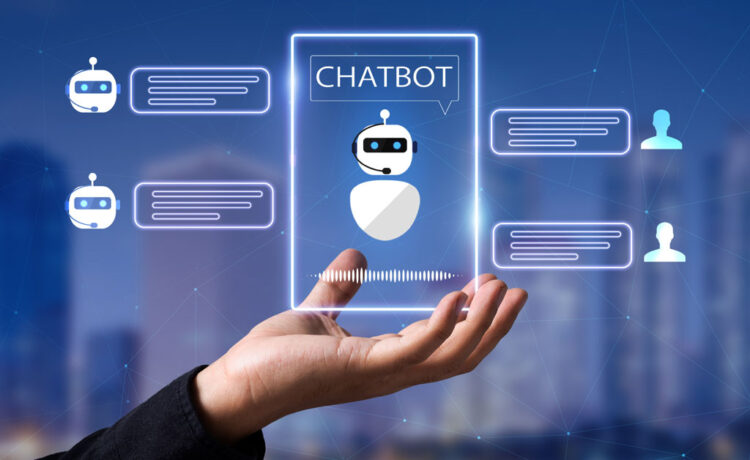Artificial intelligence has become one of the most transformative forces in the modern economy, reshaping how companies communicate, operate, and deliver value. Among the most visible applications of AI in the business world are AI chatbots, which are revolutionizing the way organizations engage with customers, streamline service operations, and enhance overall experiences. Understanding how AI chatbots are enhancing business service experiences offers a clear window into the future of customer engagement and operational excellence.
The Evolution of AI Chatbots in Business Services
AI chatbots have progressed far beyond their early, scripted counterparts. Initially, they were simple automated tools that could handle only basic queries or direct customers to relevant resources. Today, advanced chatbots powered by natural language processing (NLP), machine learning, and conversational AI are capable of understanding complex language patterns, learning from interactions, and responding with remarkable accuracy and empathy.
Modern chatbots integrate seamlessly into various business functions, from customer support and sales to onboarding and internal communication. This transformation has made them a vital part of the business service ecosystem, where efficiency, personalization, and speed are top priorities.
The Role of AI Chatbots in Business Services
AI chatbots are now a cornerstone of service innovation. They bridge the gap between human expertise and technological efficiency, offering businesses a way to operate continuously while maintaining high service quality. Their role can be broadly categorized into three primary functions: customer interaction, service automation, and data-driven insights.
1. Customer Interaction and Engagement
AI chatbots enhance service experiences by providing instant, consistent, and personalized interactions. Unlike traditional support systems that depend on human agents’ availability, chatbots can operate 24/7, addressing customer queries in real-time.
- Instant Response: Customers today expect immediate answers. Chatbots eliminate waiting times, improving satisfaction and trust.
- Multilingual Support: AI-powered systems can converse in multiple languages, expanding accessibility and enhancing global customer reach.
- Personalization: Using customer data, chatbots tailor responses to individual preferences, creating experiences that feel human and relevant.
By combining speed, convenience, and personalization, chatbots deliver an efficient service model that aligns perfectly with modern consumer expectations.
2. Service Automation and Operational Efficiency
In business services, automation is key to scaling operations without compromising quality. AI chatbots automate repetitive and time-consuming tasks such as appointment scheduling, billing inquiries, or onboarding documentation.
Key benefits include:
- Reduced Operational Costs: Chatbots minimize the need for large customer service teams by handling routine queries autonomously.
- Improved Consistency: Automated responses eliminate human error, ensuring every customer receives accurate information.
- Scalable Service Delivery: Chatbots can manage thousands of simultaneous conversations, allowing businesses to serve more clients without expanding staff.
When integrated into enterprise systems such as CRMs or ticketing software, chatbots enhance workflows and free human employees to focus on more strategic tasks.
3. Data Collection and Business Insights
Every chatbot interaction generates valuable data about customer preferences, behaviors, and pain points. Businesses can analyze this information to refine services, optimize marketing strategies, and anticipate future needs.
For instance:
- Analyzing frequent customer questions can highlight product or service gaps.
- Tracking sentiment analysis helps businesses measure satisfaction in real time.
- Monitoring user interactions provides insights into communication trends and customer priorities.
These insights empower data-driven decision-making, allowing companies to evolve dynamically with their customers’ expectations.
Enhancing Customer Experience Through AI Chatbots
The primary advantage of AI chatbots in business services lies in their ability to enhance the customer experience at every stage of the journey—from pre-purchase interactions to post-service support.
Personalization Through Predictive Analytics
AI chatbots can predict customer needs based on historical data, purchase patterns, and behavioral cues. By proactively offering solutions or recommendations, they create a seamless and intuitive experience. For example, a financial services chatbot might recognize a user’s pattern of monthly expense inquiries and suggest budgeting tools or personalized financial plans.
24/7 Availability and Real-Time Assistance
In an era of global connectivity, customers expect round-the-clock support. Chatbots ensure no customer is left waiting, regardless of time zone or workload. This constant availability not only enhances satisfaction but also strengthens trust and brand reliability.
Seamless Omnichannel Integration
AI chatbots integrate across platforms—websites, mobile apps, social media, and messaging platforms—ensuring consistent service wherever customers choose to interact. A unified experience across channels reduces friction and boosts overall satisfaction.
Human-like Interaction
Advanced AI chatbots use natural language understanding (NLU) to interpret tone, context, and emotion, enabling them to engage in meaningful and empathetic conversations. This ability to “understand” and adapt creates a more natural, human-like experience that fosters emotional connection.
AI Chatbots and the Transformation of Service Delivery Models
AI chatbots are not just a customer service tool; they are redefining how businesses deliver value. They are transforming service models across industries, enabling efficiency and innovation at every level.
Streamlining Internal Business Services
Beyond external customer interactions, chatbots are improving internal workflows by assisting employees with HR queries, IT troubleshooting, and administrative tasks. This boosts productivity and allows staff to focus on higher-level work that demands creativity and strategic thinking.
Improving Lead Generation and Conversion
AI chatbots qualify leads by engaging prospects in conversation, identifying intent, and directing them toward suitable solutions or representatives. This smart automation accelerates the sales process and ensures that human sales teams focus their efforts on high-quality opportunities.
Supporting Complex Decision-Making
In business-to-business (B2B) environments, chatbots are increasingly used to guide clients through complex service options, contracts, or configurations. They can recommend solutions based on organizational needs, providing an interactive experience that simplifies decision-making.
The Human-AI Collaboration in Service Experiences
While AI chatbots deliver immense value, their true potential is realized when they operate alongside human agents. The synergy between human empathy and machine efficiency creates a service experience that is both intelligent and emotionally engaging.
The Handoff Model
When chatbots encounter complex or emotionally sensitive issues, they seamlessly transfer the conversation to a human agent. This ensures that customers receive the right level of care without frustration or disruption.
Empowering Agents with AI
Chatbots assist service agents by providing real-time suggestions, summarizing customer histories, and predicting next-best actions. This augmentation improves agent performance and enhances service quality.
Building Trust Through Transparency
Transparency in chatbot operations builds credibility. Informing users when they are speaking to an AI and ensuring smooth transitions to human agents reinforces trust and satisfaction.
The Economic and Strategic Impact of AI Chatbots
The integration of AI chatbots in business services is driving measurable economic and strategic benefits:
- Cost Efficiency: Automating repetitive tasks reduces labor costs while maintaining quality.
- Revenue Growth: Improved satisfaction and engagement translate into repeat business and higher conversion rates.
- Competitive Advantage: Businesses leveraging conversational AI gain a technological edge through faster, more personalized service.
- Data-Driven Adaptability: Continuous learning from customer interactions helps organizations stay agile and innovative.
By combining these outcomes, AI chatbots are becoming essential to long-term business sustainability and customer retention.
Overcoming Challenges in Chatbot Implementation
While the benefits are significant, successful deployment requires overcoming challenges such as:
- Training and Accuracy: Ensuring chatbots understand nuanced language and context.
- Integration Complexity: Seamlessly connecting chatbots with existing business systems.
- Customer Trust: Building confidence in automated systems through reliability and transparency.
- Continuous Improvement: Regular updates and retraining are necessary to keep responses relevant.
Businesses that address these factors proactively can fully harness the transformative power of AI chatbots.
Future Trends in AI Chatbots for Business Services
As AI technology continues to advance, chatbots will evolve into even more powerful tools for business service enhancement. Future developments include:
- Emotion Recognition: Understanding customer emotions through sentiment analysis for more empathetic responses.
- Voice-Powered Chatbots: Expanding accessibility through conversational voice AI integration.
- Proactive Support Systems: Anticipating problems before they occur and reaching out with preemptive solutions.
- Integration with Internet of Things (IoT): Enabling contextual service experiences based on real-time data from connected devices.
- Hyper-Personalization: Using AI-driven insights to tailor every interaction to the individual’s behavior, location, and preferences.
These advancements will continue to redefine service standards across industries, shaping a future where chatbots are integral to every customer journey.
FAQs
Q1. How do AI chatbots differ from traditional automated systems?
AI chatbots use natural language processing and machine learning to understand context and intent, allowing for more natural, dynamic, and human-like interactions compared to rigid, rule-based systems.
Q2. Can AI chatbots replace human customer service representatives?
No. Chatbots complement human agents by handling repetitive tasks and basic queries, while humans manage complex, emotional, or high-value interactions that require empathy and judgment.
Q3. How do chatbots improve business service quality?
They enhance service quality by providing fast, accurate, and personalized responses, minimizing errors, and ensuring consistent experiences across channels.
Q4. What industries benefit most from AI chatbots?
While nearly every industry can leverage AI chatbots, sectors like finance, healthcare, e-commerce, and professional services see particularly strong returns due to their high interaction volumes and complex customer needs.
Q5. How can businesses ensure customers trust AI chatbots?
Transparency, data privacy, and clear communication are key. Customers should always know when they’re interacting with a chatbot, and companies must safeguard user data to maintain credibility.





